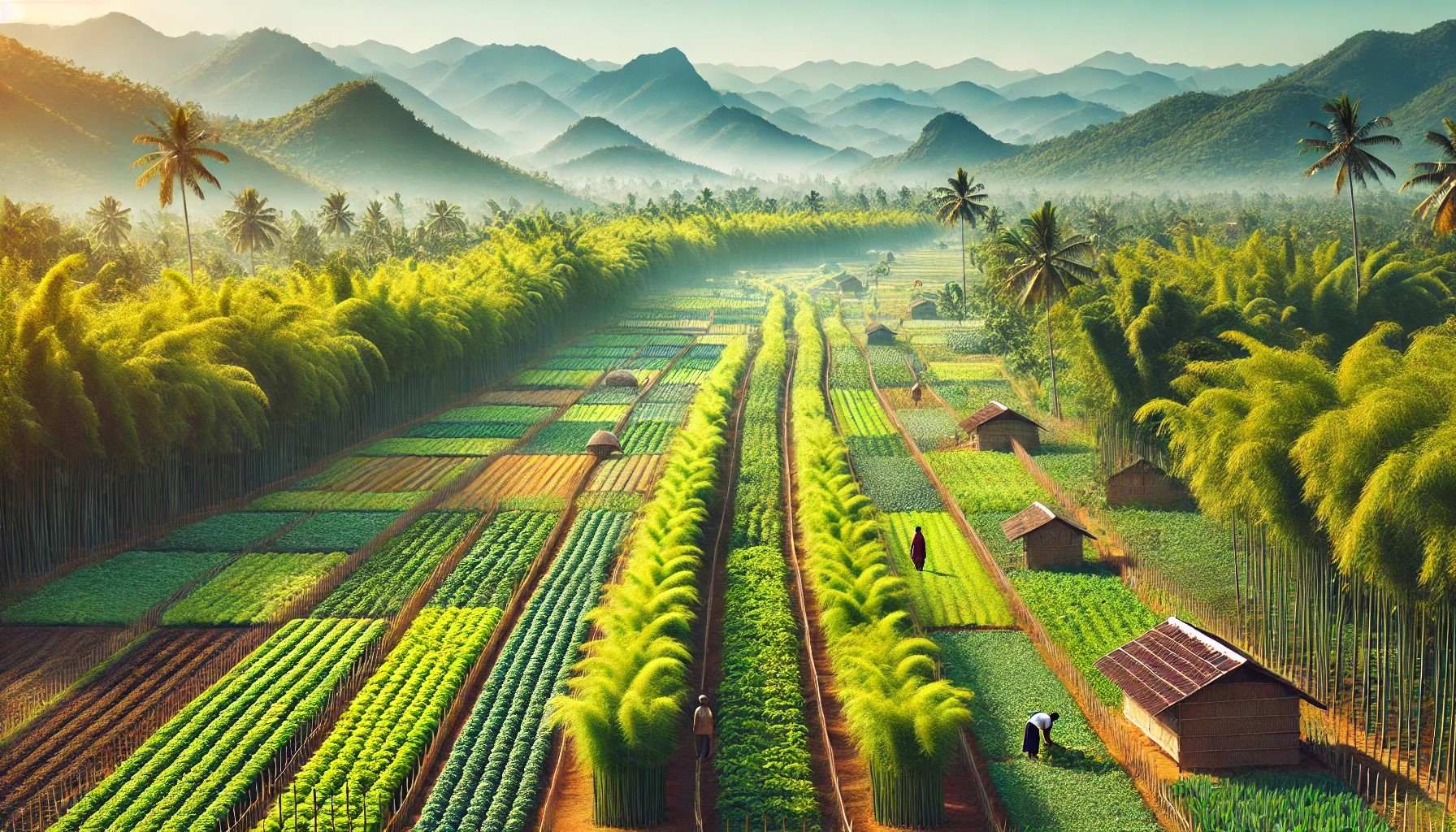Bamboo and Agriculture Pioneering Sustainable Farming in India

Bamboo, often called the “green gold” of India, has emerged as a vital component in sustainable farming practices. Known for its fast growth and versatility, bamboo is increasingly being used by farmers to combat soil erosion, improve water retention, and create an eco-friendly alternative to conventional farming methods. Its ability to grow in diverse climates and conditions makes it an ideal crop for promoting agricultural sustainability across India.
One of the most remarkable benefits of bamboo in agriculture is its capacity to restore degraded land. Farmers in regions with barren or nutrient-depleted soil have successfully used bamboo plantations to rejuvenate the land while also providing an additional source of income. Its deep-rooted system helps stabilize the soil, preventing erosion even in flood-prone areas, which is a significant advantage in many parts of the country.
Bamboo’s applications extend beyond soil conservation to include innovative farming systems. Farmers are incorporating bamboo as windbreaks, intercropping it with traditional crops to maximize land use efficiency. Additionally, bamboo shoots provide a nutritious food source, while its mature stalks are utilized for building materials, furniture, and handicrafts, further boosting the rural economy. This multifunctionality positions bamboo as a game-changer in achieving sustainability in agriculture.
Government initiatives and policies have further accelerated the adoption of bamboo-based farming in India. Programs aimed at promoting bamboo cultivation and providing financial incentives to farmers are creating awareness about its economic and environmental benefits. By integrating bamboo into farming systems, India is taking significant steps toward achieving climate resilience and sustainable development goals.
The growing popularity of bamboo in agriculture highlights its potential to transform farming practices in India. As farmers embrace this sustainable crop, it not only offers solutions to pressing environmental challenges but also creates avenues for economic growth and rural empowerment. Bamboo’s role in shaping the future of sustainable farming practices makes it a symbol of hope and innovation for generations to come.
